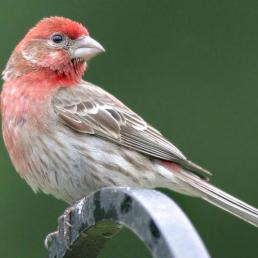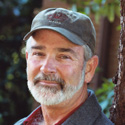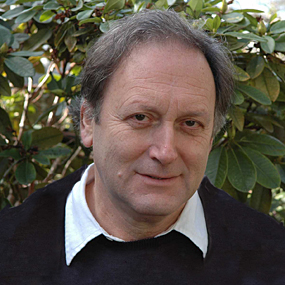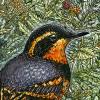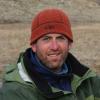

Join BirdNote tomorrow, November 30th!
Illustrator David Sibley and actor H. Jon Benjamin will face off in the bird illustration battle of the century during BirdNote's Year-end Celebration and Auction!
For birds, a brain that can function while literally half-asleep is important to survival. In flocks of birds at roost, those at the outer edge of the flock often have one eye open. Such birds are truly half-asleep: one brain hemisphere snoozes as the other remains awake and alert. The eye connected to the sleeping half of the brain closes; the eye of the wakeful hemisphere remains open and vigilant. Birds in the middle of the flock are resting the entire brain, sleeping with both eyes closed. Learn more about "wakeful hemisphere" sleeping in birds and other animals. Find out more about this Greater Yellowlegs at Cornell's All About Birds.
BirdNote®
Birds Half Asleep, Half Awake
Written by Bob Sundstrom
This is BirdNote!
Ever have one of those days when you feel half-asleep, like your brain isn’t fully in gear? [Sound of yawning]
Well, for birds, a brain that can function while literally half-asleep is important to survival. In flocks of birds at roost, like a flock of ducks sleeping huddled together on the beach, the birds at the outer edge of the flock often have one eye open. [Mallards quacking]
Such birds are truly half-asleep: one brain hemisphere snoozes as the other remains awake and alert. The eye connected to the sleeping half of the brain closes; the wakeful hemisphere’s eye remains open and vigilant. [Mallards quacking] Birds in the middle of the flock are resting the entire brain, sleeping with both eyes closed.
Single-hemisphere sleeping likely evolved as animals scanned for predators, a crucial adaptation that allows simultaneous sleep and vigilance. The definitive research has yet to be done. But evidence suggests that some birds may even be able to rest half their brains when flying. Perhaps that is how birds such as Brant are able, during migration, to fly for days without stopping.
Clearly we should afford a new level of respect to the phrase “bird-brain.”
The BirdNote team is grateful to BirdNote's benefactors, who through their goodwill and philanthropy, are making it possible for people to connect with nature. I’m Frank Corrado
###
Call of the Mallard provided by The Macaulay Library at the Cornell Lab of Ornithology, Ithaca, New York. Recorded by A.A. Allen.
Producer: John Kessler
Executive Producer: Chris Peterson
© 2007 Tune In to Nature.org
ID# 050107ducksleepKLU
